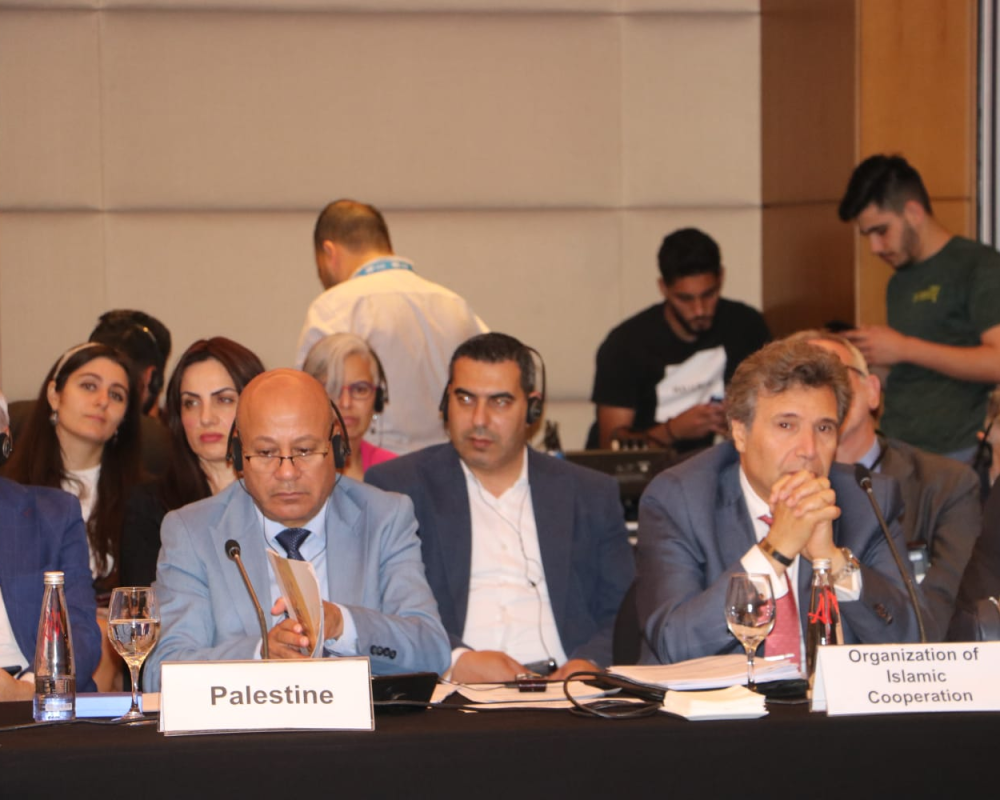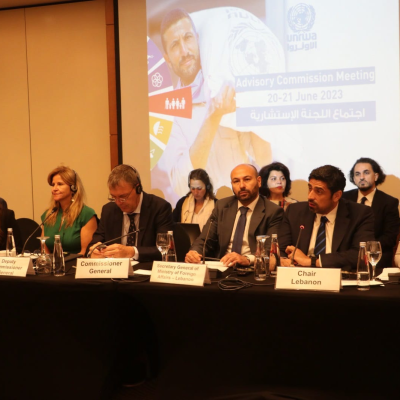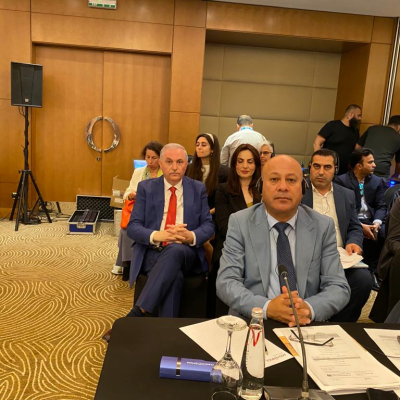
Beirut / PNN /
Member of the Executive Committee of the Palestine Liberation Organization and Head of the Department of Refugee Affairs, Dr. Ahmed Abu Holi, called on the United Nations to take urgent steps to implement the decision to increase its financial contributions to UNRWA.
In his speech delivered at the Advisory Committee meetings, which began this morning at the Mövenpick Hotel in the Lebanese capital, Beirut, with the attendance of 28 donor countries, in addition to the host countries, the Arab League and the European Union, donor countries that have reduced their funding this year should reconsider their decision to prevent a humanitarian catastrophe for Palestinian refugees amid worsening living conditions.
The Committee discusses over two days the issues related to the nature of UNRWA's work and the programs it provides to Palestinian refugees in its operational areas, as well as its strategic plans and the challenges imposed by the Russian-Ukrainian war on its funding.
Dr. Abu Holi emphasized that political support cannot remain separate from financial support, as both are required from the international community to achieve sustainable funding for UNRWA.
Dr. Abu Holi emphasized the need for swift action to develop a wage policy that transitions from an outdated system to a modern and flexible wage system that takes into account the cost of living in the host country and the economic fluctuations in the region. He directed his call to the chair of the Advisory Committee to form a specialized working group to assist UNRWA in developing its wage policy.

He stressed the importance of improving the regulated relationship and coordination between the union and the management of UNRWA to avoid the negative impact of future strikes, in order to achieve the interests of the workers, the agency, and the refugees.
He pointed out that achieving financial stability for UNRWA's budget requires securing sufficient and predictable funding through multi-year financing agreements, moving away from unstable voluntary funding that puts UNRWA in recurrent and renewed crises every year.
He welcomed the reform plans of UNRWA, rejecting the notion that neutrality should be a sword hanging over the agency's employees, emphasizing the need to define it according to the United Nations definition that is not in conflict with the supported Palestinian national culture and identity, as endorsed by UN resolutions.
He also pointed out that the ongoing large financial deficit in UNRWA's regular and emergency budgets threatens its ability to provide emergency assistance to more than 1.7 million classified as the most impoverished Palestinian refugees. Cash and food assistance are a lifeline for them, as well as the salaries of employees, which the agency will face difficulties in paying starting from September 2023, making it challenging to open the 2023-2024 academic year.
He emphasized the importance of strengthening collective efforts to support UNRWA, making it a strong agency capable of facing challenges and fulfilling its responsibilities until a just solution to the refugee issue is found in accordance with international legitimacy resolutions.
He stated, "UNRWA is the hope of the refugees, and it bears witness to their suffering, embodying the international commitment towards their cause. We will not allow it to be compromised."
It is worth noting that the Palestinian delegation to the Advisory Committee meetings, led by Dr. Abu Houli, includes Rami Madhoun, the Director-General of the Information and Studies Department, Haitham Za'iter, a member of the Refugee Committee in the National Council, and Mai Odeh, the Head of the International Relations Department.
